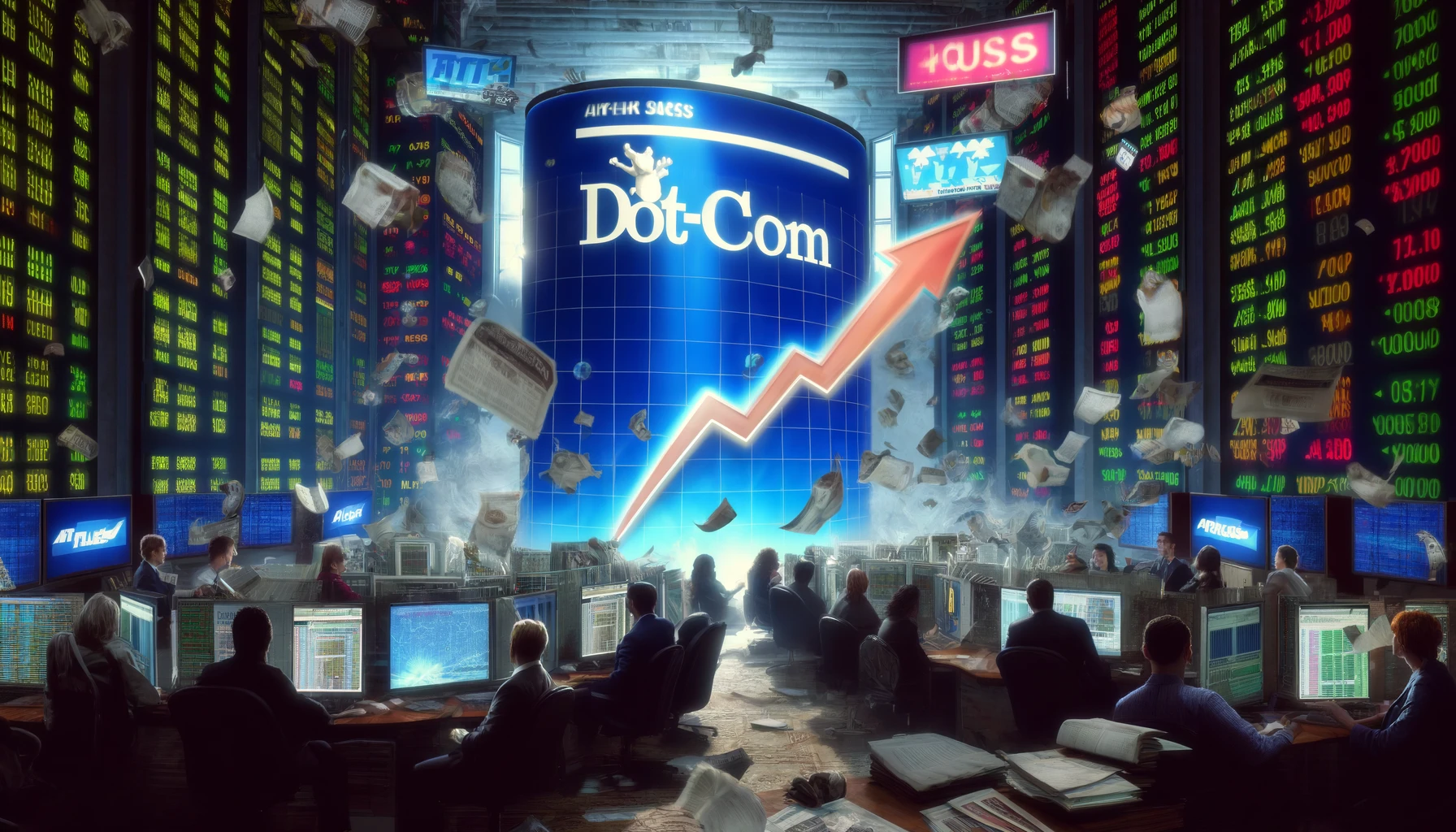Comparing The Current AI Gold Rush With The Dot-Com Bubble: Lessons For Finance Professionals

The rapid advancements in artificial intelligence (AI) have ignited a fervent rush reminiscent of the dot-com bubble of the late 1990s. As companies race to develop and deploy cutting-edge AI technologies, investors pour billions into startups and established firms alike, hoping to capitalize on the next big breakthrough. This article aims to compare the current AI gold rush with the dot-com bubble, drawing lessons for finance professionals on how to navigate this high-stakes landscape.
Historical Contexts
A. The Dot-Com Bubble
The dot-com bubble, spanning the late 1990s to early 2000s, was characterized by a surge in internet-based companies. Investors flocked to tech startups with little regard for their profitability or business models, driven by the promise of the internet revolutionizing commerce and communication. Notable examples include Pets.com and Webvan, whose spectacular rises and subsequent crashes epitomized the era's speculative frenzy.
B. The AI Gold Rush
Today's AI gold rush mirrors this earlier period, with significant investments flowing into AI startups and major tech giants. Companies like OpenAI, Google's Bard, and Tesla's AI initiatives exemplify the intense focus on leveraging AI for competitive advantage. The rapid pace of development and deployment highlights the urgency felt by companies to not be left behind.
Similarities between the AI Gold Rush and the Dot-Com Bubble
A. Speculative Investments
Just as the dot-com era saw skyrocketing valuations of internet companies without proven profitability, the AI sector is witnessing similar trends. Startups receive substantial funding based on their potential rather than actual performance, reminiscent of the dot-com boom’s speculative nature.
B. Rapid Technological Advancements and Hype
Both eras experienced a significant overestimation of short-term technological impacts. Media hype and public excitement have driven investments in AI, much like the dot-com era's enthusiasm for internet technologies.
C. Market Reactions to Failures
The market's reaction to failures in both periods has been severe. Google's Bard error, which resulted in a $100bn drop in Alphabet's market value, parallels the dramatic corrections following high-profile failures during the dot-com bubble.
Key Differences
A. Technological Maturity
The dot-com era was marked by nascent internet technology, while today’s AI technologies are more mature and integrated across various industries, offering more tangible benefits and applications.
B. Regulatory Environment
The dot-com bubble occurred in a largely unregulated environment, whereas the AI sector faces increasing regulatory scrutiny. Policies such as GDPR and proposed AI regulations aim to address ethical concerns and ensure responsible development.
C. Societal Impact
While the dot-com bubble's impact was primarily economic, AI's implications extend to privacy, employment, and ethical considerations. The societal ramifications of AI technologies necessitate a more cautious and responsible approach.
Risks and Challenges
A. Overpromising and Underdelivering
The risk of rushing AI products to market is significant, as evidenced by Tesla's issues with its Fully Self Driving (FSD) features. Similar to the dot-com bubble, failing to meet high expectations could lead to substantial market corrections.
B. Ethical and Societal Implications
AI technologies raise ethical concerns, including privacy violations and job displacement. Case studies of ethical dilemmas and regulatory responses highlight the importance of addressing these issues proactively.
Strategic Considerations for Finance Professionals
A. Investment Strategies
To mitigate risks, finance professionals should diversify their investments and focus on companies with sustainable and ethical AI practices. This approach can help avoid the pitfalls of speculative investments.
B. Long-Term vs. Short-Term Gains
Balancing immediate returns with long-term viability is crucial. Investors should prioritize companies that demonstrate strong fundamentals and long-term growth potential.
C. Importance of Due Diligence
Thoroughly assessing AI companies' technological capabilities and market strategies is essential. Evaluating regulatory risks and compliance can help investors make informed decisions.
Lessons from the Dot-Com Bubble
A. Importance of Fundamentals
Revenue, profitability, and sustainable business models are critical. The dot-com bubble taught investors the importance of focusing on fundamentals rather than hype.
B. Market Corrections as Learning Opportunities
Market corrections, though painful, provide valuable lessons. The dot-com bubble's aftermath underscored the need for caution and due diligence.
C. The Role of Regulatory Oversight
Effective regulatory frameworks are essential for ensuring ethical and responsible AI development. Learning from past mistakes can help prevent future bubbles.
The AI gold rush presents both tremendous opportunities and significant risks. By learning from the dot-com bubble, finance professionals can navigate this landscape with caution and insight, balancing the potential for high returns with the necessity of sustainable and ethical practices. As the AI industry continues to evolve, a balanced approach will be key to harnessing its potential while mitigating its risks.
World Liberty Seeks Federal Trust Charter
World Liberty Financial, the crypto venture backed by the Trump family, has applied for a US national bank trust charter... Read more
Saudi Banks Tap Overseas Markets
Saudi Arabia’s banks are borrowing from international markets at their fastest pace on record, as lenders try to squar... Read more
Amazon Continues To Cut 16000 Gone
Amazon has announced plans to cut a further 16,000 roles from its corporate workforce, extending the cost and organisati... Read more
The UK May Have A Voice In Ai
Europe’s AI sector has grown accustomed to playing catch-up. Capital has flowed more slowly than in Silicon Valley, va... Read more
Musk Applies Pressure To BT
Britain’s broadband market has spent the past decade locked in a familiar pattern. Incumbents invested heavily in fibr... Read more
Blackrock Sees EMEA Moving Into Private Assets
BlackRock has warned that investors across Europe, the Middle East and Africa are reshaping portfolios in response to wh... Read more

